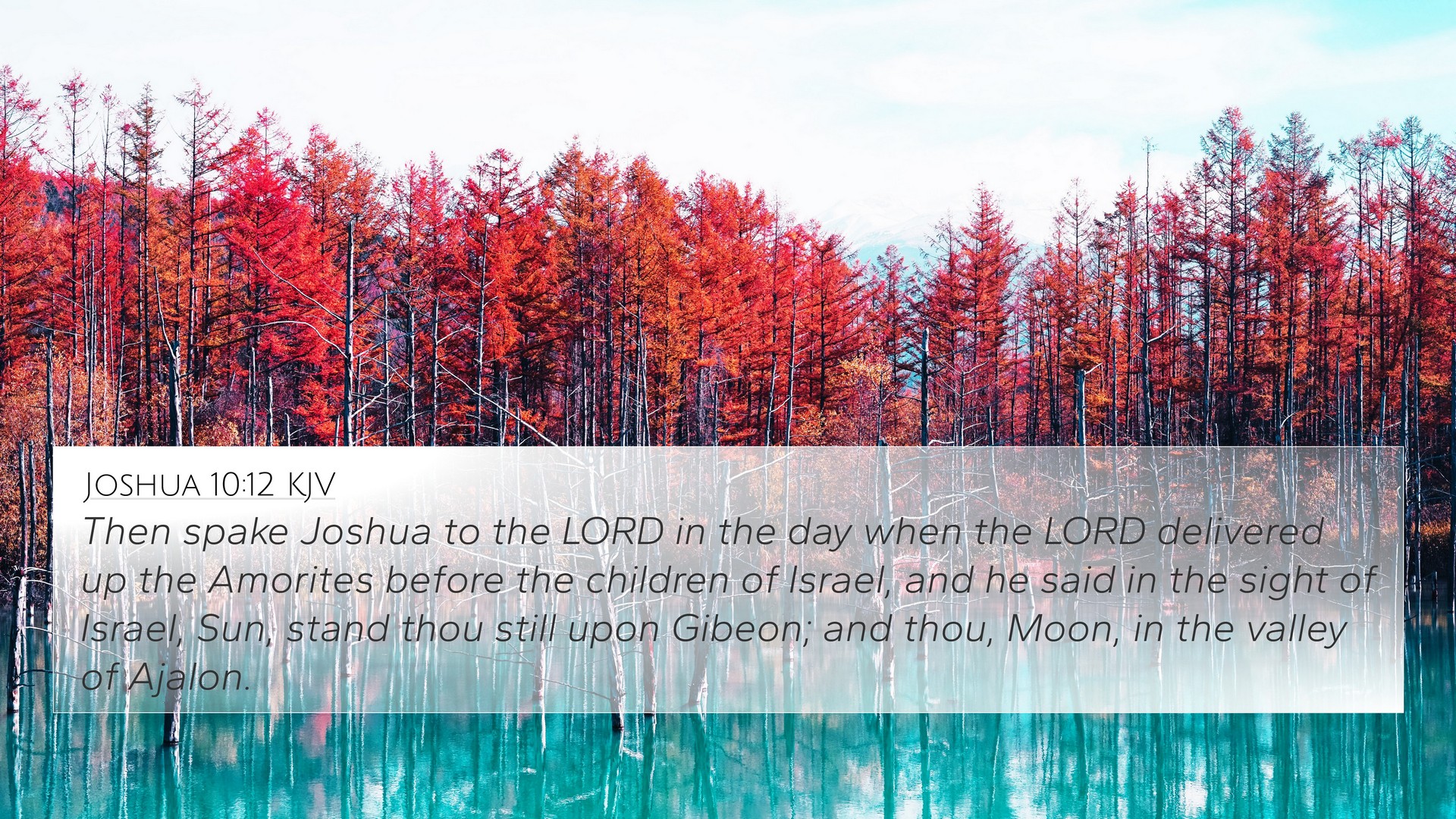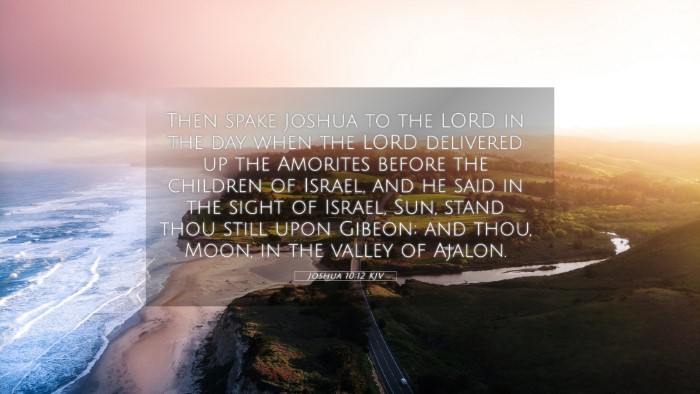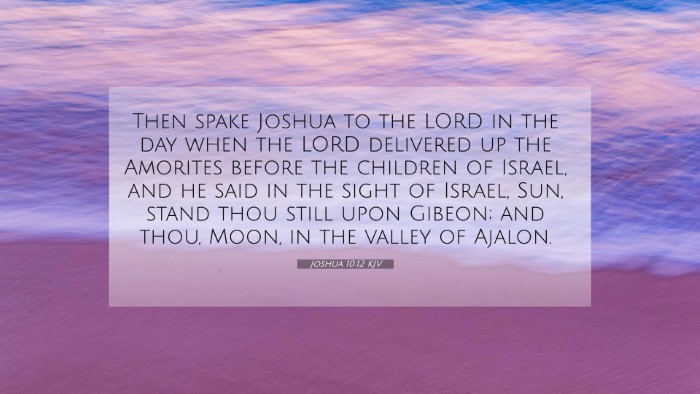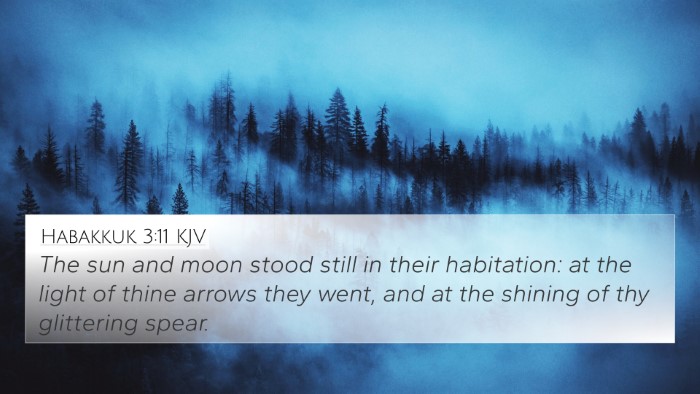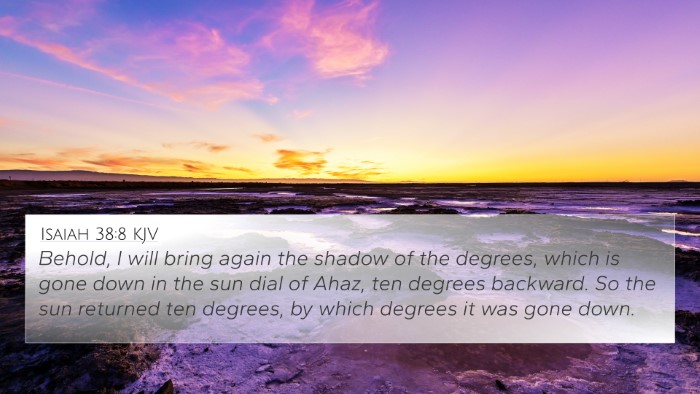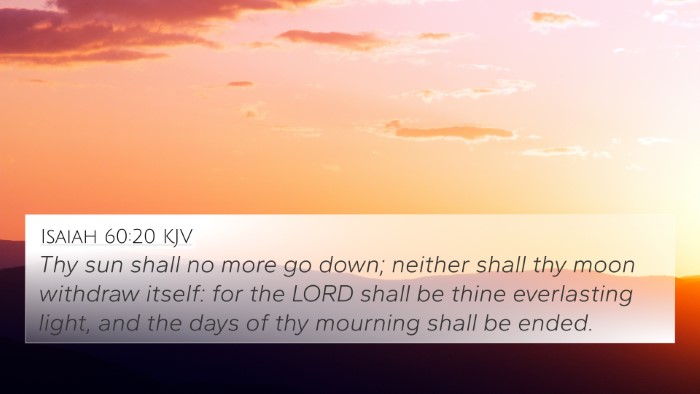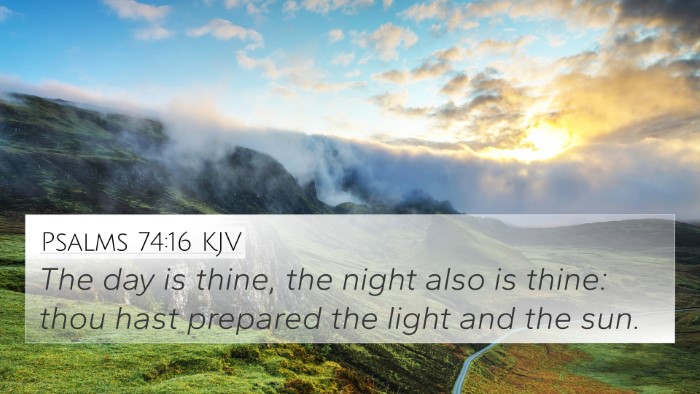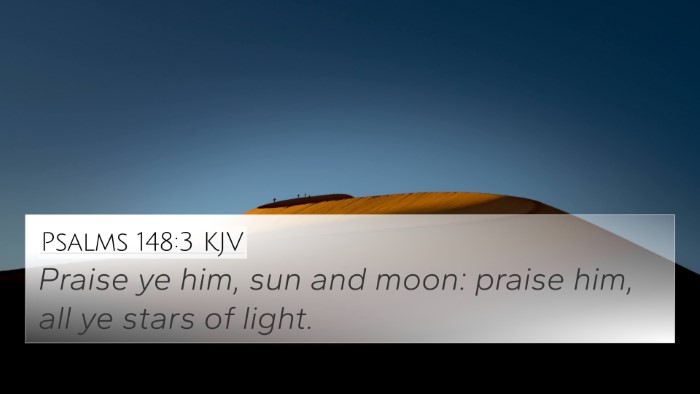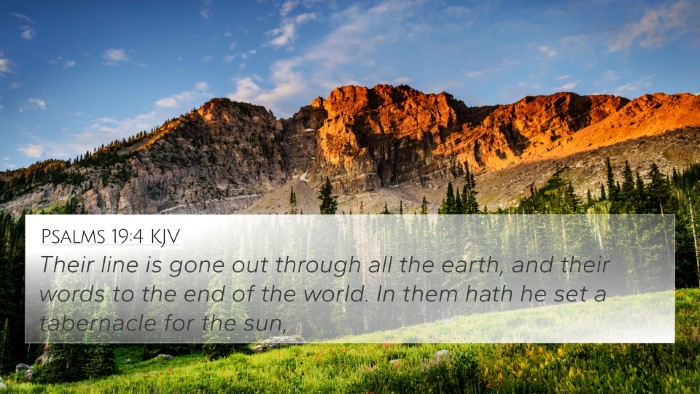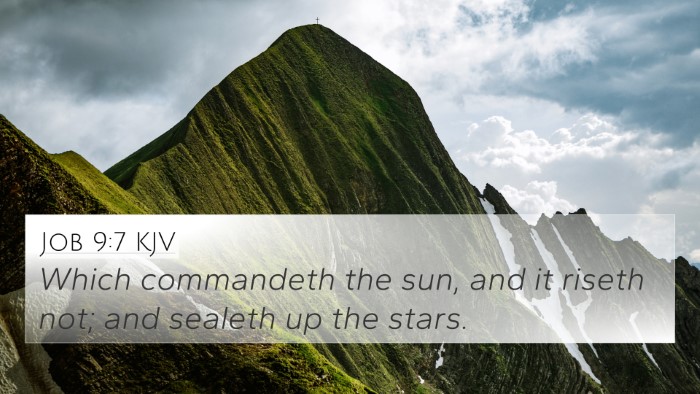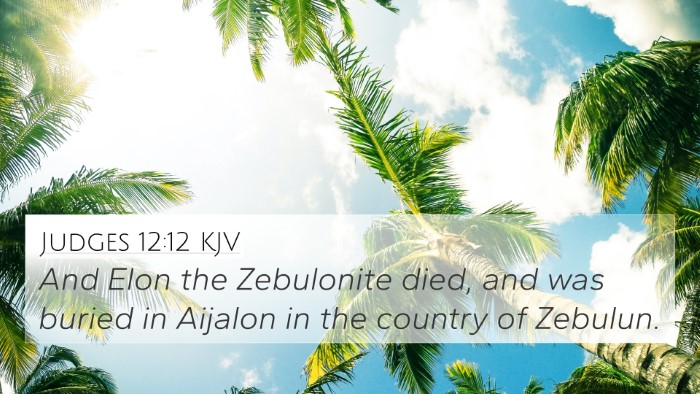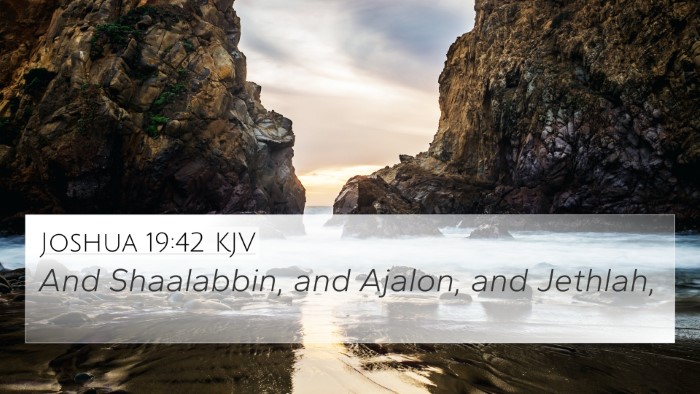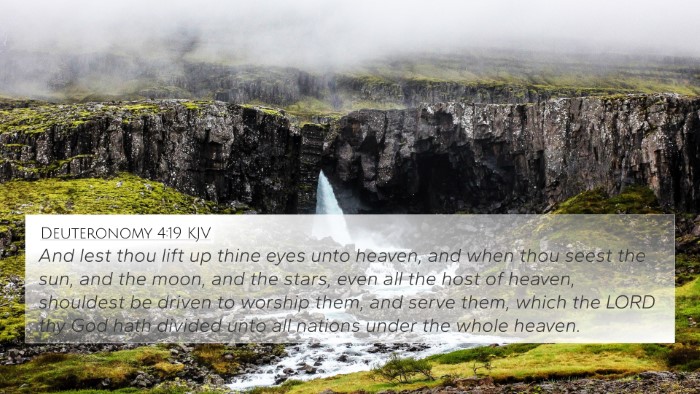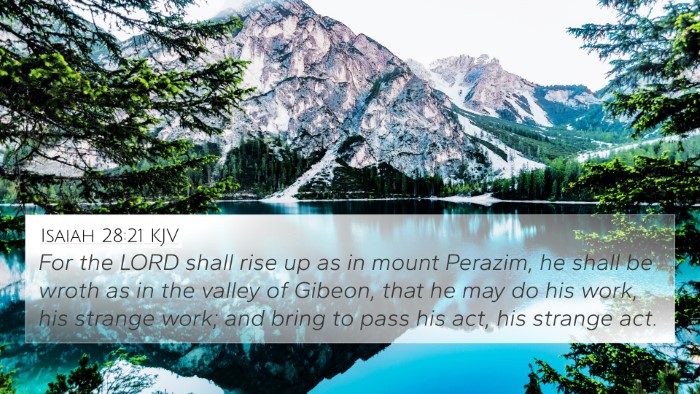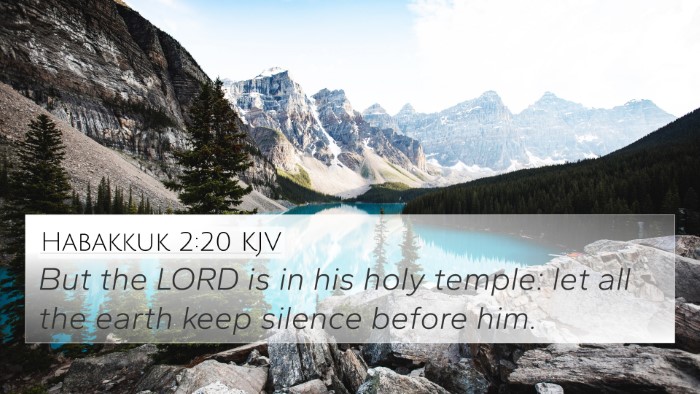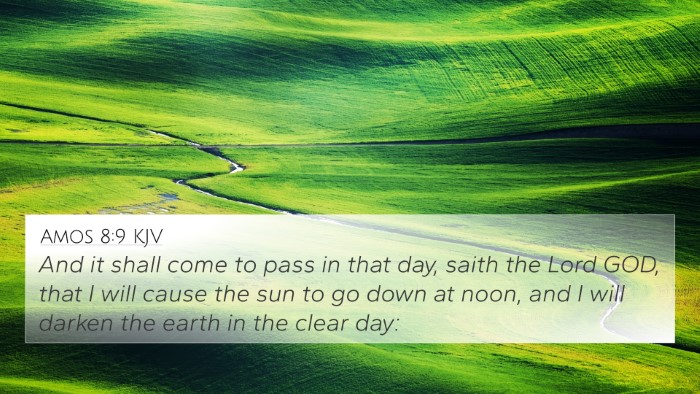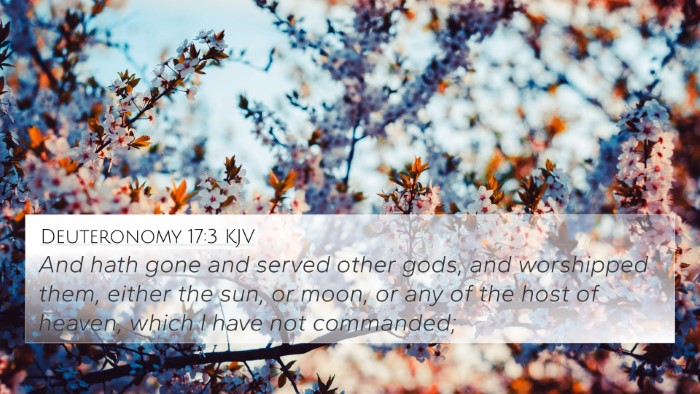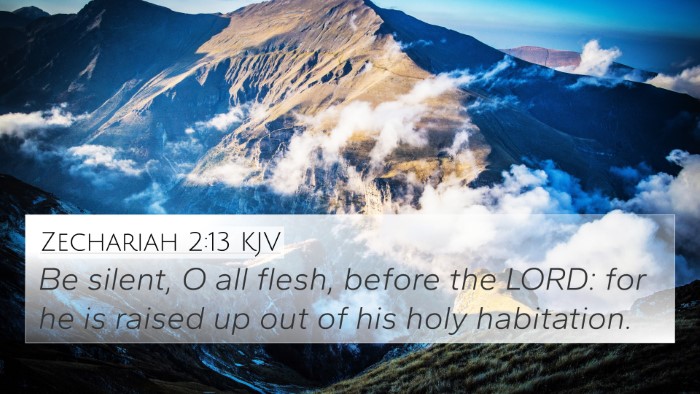Understanding Joshua 10:12
Verse: "Then spoke Joshua to the Lord in the day when the Lord delivered up the Amorites before the children of Israel: and he said in the sight of Israel, Sun, stand thou still upon Gibeon; and thou, Moon, in the valley of Ajalon."
Summary of Insights from Commentaries
This passage describes a remarkable event where Joshua, during a pivotal battle, commands the sun and moon to stand still in order to prolong the daylight for the Israelites' victory over the Amorites. This act is not merely a demonstration of Joshua’s faith but serves as a profound testament to God’s sovereignty and power over creation.
-
Matthew Henry:
Henry emphasizes that this prayer by Joshua reflects incredible faith, recognizing God’s ultimate authority over the natural order. He draws attention to how Joshua seeks divine intervention at a critical moment, trusting that God can manipulate time and nature to aid His people.
-
Albert Barnes:
Barnes elaborates on the physical dynamics of the miracle, suggesting that God is capable of suspending the normal course of celestial bodies to fulfill His purposes. He also discusses the importance of this event in the larger context of God's promises to Israel, portraying it as an affirmation of divine support in their conquest of Canaan.
-
Adam Clarke:
Clarke offers a theological interpretation of the event, connecting it to God's fidelity in upholding His covenant with Israel. He highlights the assurance given to Joshua that reinforces the notion of God as a protector and guide, showcasing the miraculous nature of God’s intervention in history.
Thematic Connections
This event resonates with numerous other biblical passages, strengthening the understanding of God’s involvement in human affairs and His miraculous power. Below are cross-references that relate to Joshua 10:12:
- Exodus 14:21-22: The parting of the Red Sea reflects God's control over natural phenomena to deliver His people.
- Isaiah 38:8: King Hezekiah’s request for a sign through the sun's shadow illustrates God's responsiveness to human prayer.
- Psalms 74:16-17: References to God’s authority over the day and night, anchoring the theme of divine sovereignty.
- Job 9:7: Job speaks of God commanding the sun, emphasizing His dominion over creation, similar to Joshua’s declaration.
- 2 Peter 3:10: A reminder of the ultimate power of God over the heavens and the earth, relevant in discussing God’s control in Joshua's time.
- Mark 4:39: In the New Testament, Jesus calms the storm, showcasing His command over nature.
- Matthew 17:20: Here, faith is discussed in the context of achieving the seemingly impossible, paralleling Joshua’s faith-filled command.
Comparative Analysis
When we link this event in Joshua 10:12 with other scriptures, we see a pattern of divine intervention supporting God's people against overwhelming odds.
Tools for Cross-Referencing
Utilizing tools such as Bible Concordances and cross-reference guides can greatly enhance one's understanding of biblical texts and their interconnected themes. Here are some methods to facilitate this:
- Cross-reference Bible study: Identifying links between different scriptures can deepen theological insights.
- Comprehensive Bible cross-reference materials: Utilizing these resources helps in systematically understanding biblical relationships.
Conclusion
Joshua 10:12 encapsulates a significant moment in the biblical narrative, revealing not only the extraordinary nature of God's power but also the remarkable faith exhibited by His servant, Joshua. By cross-referencing this verse with others, one can appreciate the broader theological implications and the interconnectedness of Scripture, enriching one’s spiritual journey and understanding of God’s historical dealings with His people.
